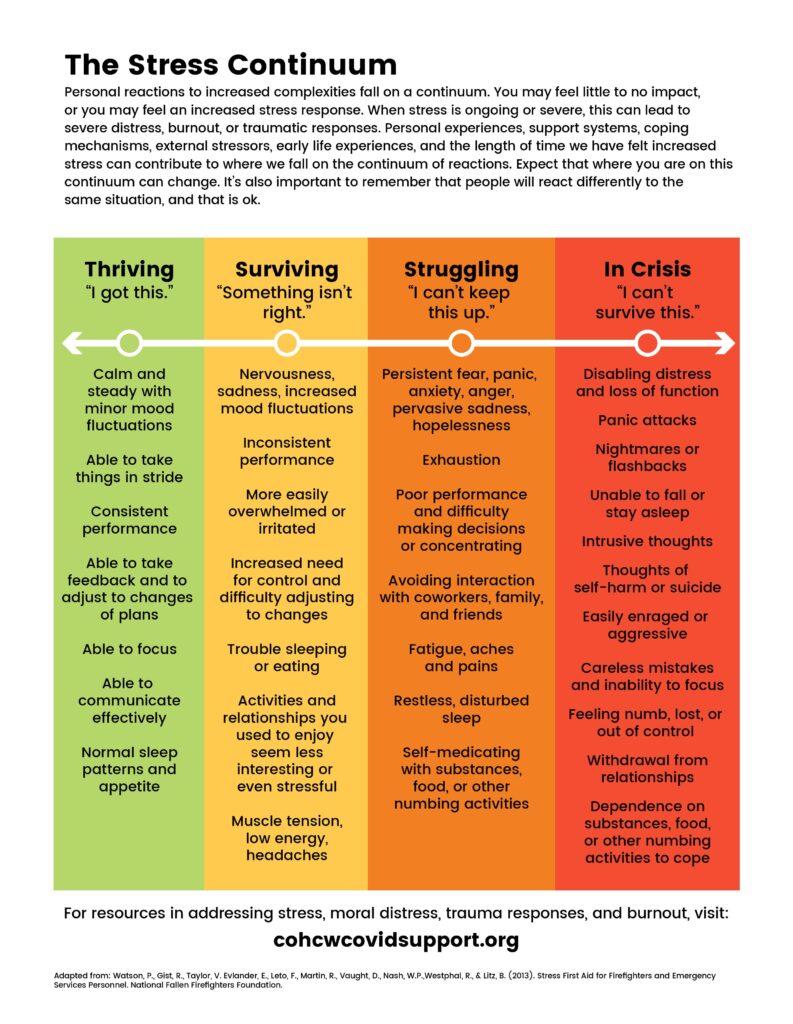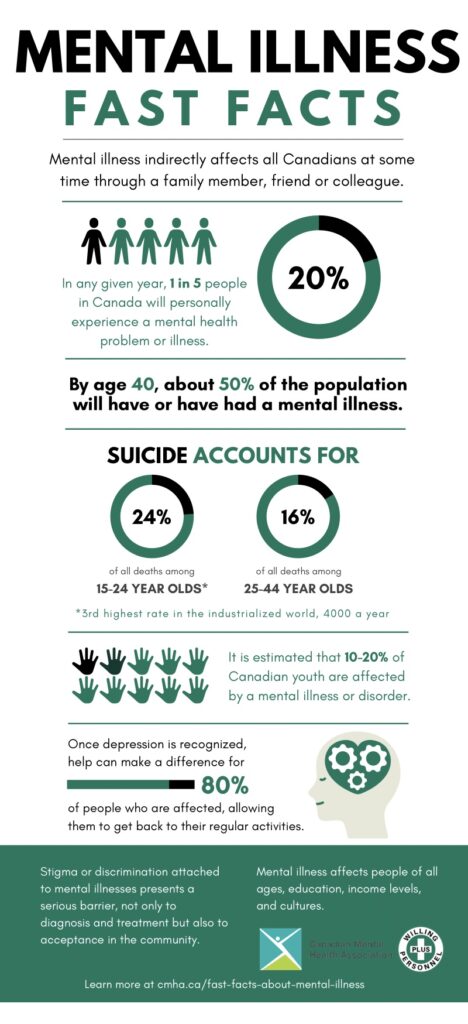Are you feeling stressed out or overwhelmed? Feel like you’re not having any fun or enjoying life? Do you feel unmotivated and worn out?
Our bodies and our mood may be trying to offer us important information about our well-being and can encourage us to do something about the way we are feeling.
However, there are many stigmas and misconceptions about mental health that can prevent us from seeking out the support that may be vital in helping us cope with difficult thoughts, feelings, and/or circumstances.
It’s important for us to educate ourselves about mental health so that we can allow ourselves to understand what factors can be contributing to our overall state of well-being and the well-being of those we care about.
Here are some stats, factors, symptoms, and next steps to help you improve your mental well-being:
1. What are the facts about mental health in Canada?
You can also take a look at the findings from this recent study: Mental Health in Crisis: How Covid-19 is impacting Canadians
- ‘One-third of Canadians report their mental health is affecting their ability to function, with social and family life being the hardest hit’ as well as their productivity
- In Ontario 33% report high levels of anxiety and 21% report high levels of depression. However, ‘69% of Canadians indicated a high degree of resiliency’
- Canadians experiencing high levels of anxiety reported in the survey that they expect mental health to improve (28% to 18%)
- Vaccine efforts, reduced lockdowns, and the start of summer are all possible factors leading to improved mental health
- The best thing to support mental health during these times is to go outside and walk or hike
2. Which factors may influence mental health and well-being?
There are possible risk factors, as well as life factors to consider.
Possible Risk factors:
- Genetics (family history, or brain chemistry)
- Negative life experience (abuse, neglect, or trauma)
- Stressful life events (death of a loved one, divorce, or financial problems)
- Environmental (exposure to drugs, or alcohol as a fetus)
- Status (social, economic, or educational)
- Physical health (brain damage, pervasive illness, or injury)
Mental health can be positively or negatively influenced by mental well-being. This is known as the two continuum model of mental health. You may have no mental illness and have low mental well-being and be struggling. Or you may have a mental illness and high mental well-being and be coping very well.
3. What are typical mental health symptoms?

Mental health symptoms can vary and affects one’s behaviours, thoughts and/or emotions. Symptoms may be mild to severe and are marked by some kind of distress and inability to function over an extended period of time.
Examples from the Mayo Clinic:
- Feeling sad or down
- Confused thinking or reduced ability to concentrate
- Excessive fears or worries, or extreme feelings of guilt
- Extreme mood changes of highs and lows
- Withdrawal from friends and activities
- Significant tiredness, low energy, or problems sleeping
- Detachment from reality (delusions), paranoia or hallucinations
- Inability to cope with daily problems or stress
- Trouble understanding and relating to situations and to people
- Problems with alcohol or drug use
- Major changes in eating habits
- Sex drive changes
- Excessive anger, hostility, or violence
- Suicidal thinking

4. How to seek mental health help for yourself, your child, your family, your friend, or your colleague?
Awareness is the first step to get support and help for yourself or others. If you are experiencing any of the symptoms above, feel like you are not managing, or just don’t feel like yourself, there is support available.
Do you need support? Call Distress Centres of Greater Toronto 416-408-4357.
Are you in crisis? Call 911 or visit your local emergency room.
- Talking to your doctor is a great first step to see if there are any medical reasons for your symptoms.
- If you are or have experienced a risk factor then accessing some of these resources may be right for you.
- Call 1-833-456-4566 if you are thinking about suicide, know someone who is thinking about suicide, or struggling with a loss from suicide. There is support for you.
- If you want to improve your mental health or wellbeing, find resources and support here.
- If you know someone who is struggling; listen, show empathy, ask how can I help, and if they want help, support their calls to their doctor or other services. You can also accompany them to appointments if they feel they need the support.
Take good care of yourself. A regular schedule that includes 7-9 hours of sleep, healthy eating, and regular physical activity is important. If you are struggling with these contact your doctor. If you need some tips, check out our previous blog posts on getting more movement into your day and improving your sleep.
Most importantly, remember, you are not alone.

Thanks for reading our post! The Workplace Wellness Blog is here to share tips and resources to help you be the best you can be for yourself, your social circle, and your home and work community!
Found this post helpful? Subscribe down below to be notified each time we share a new post!
